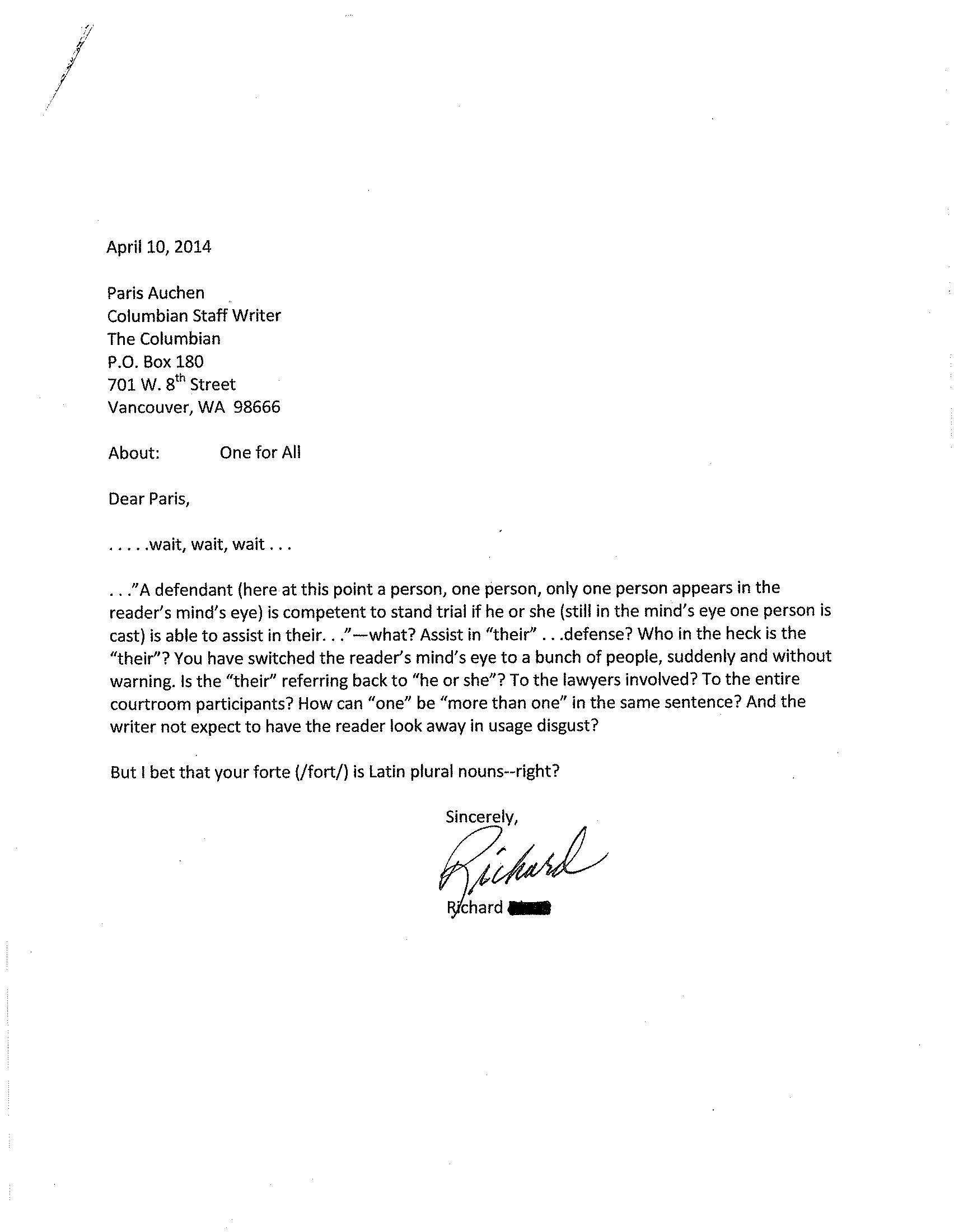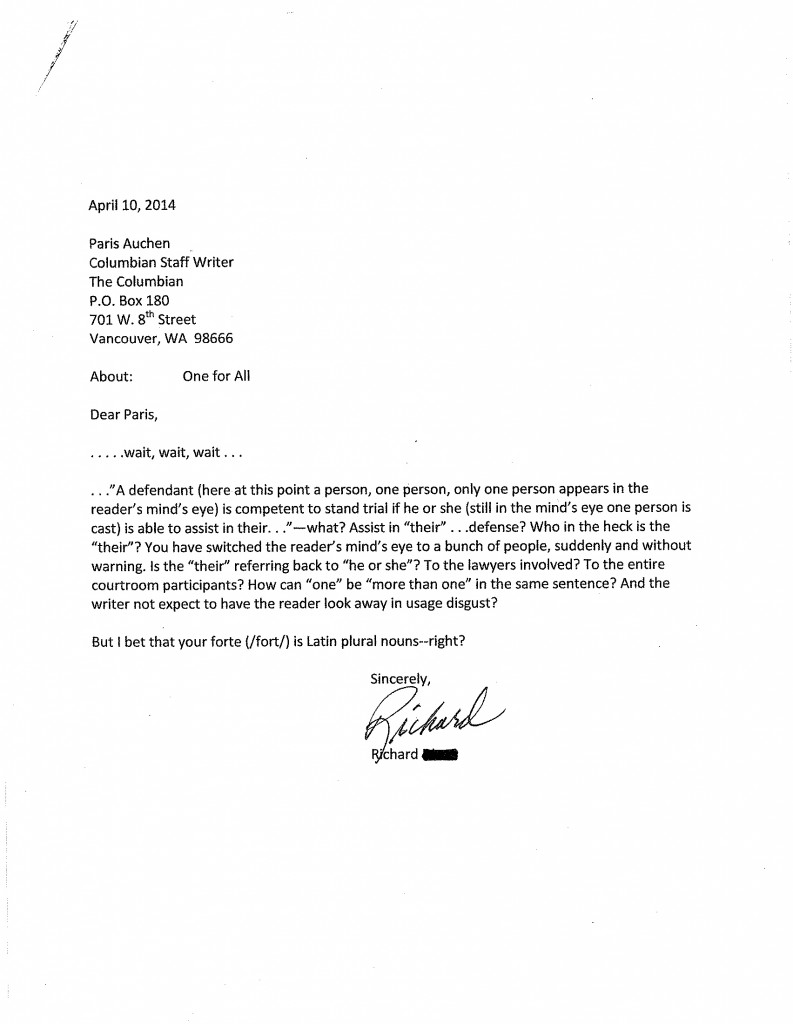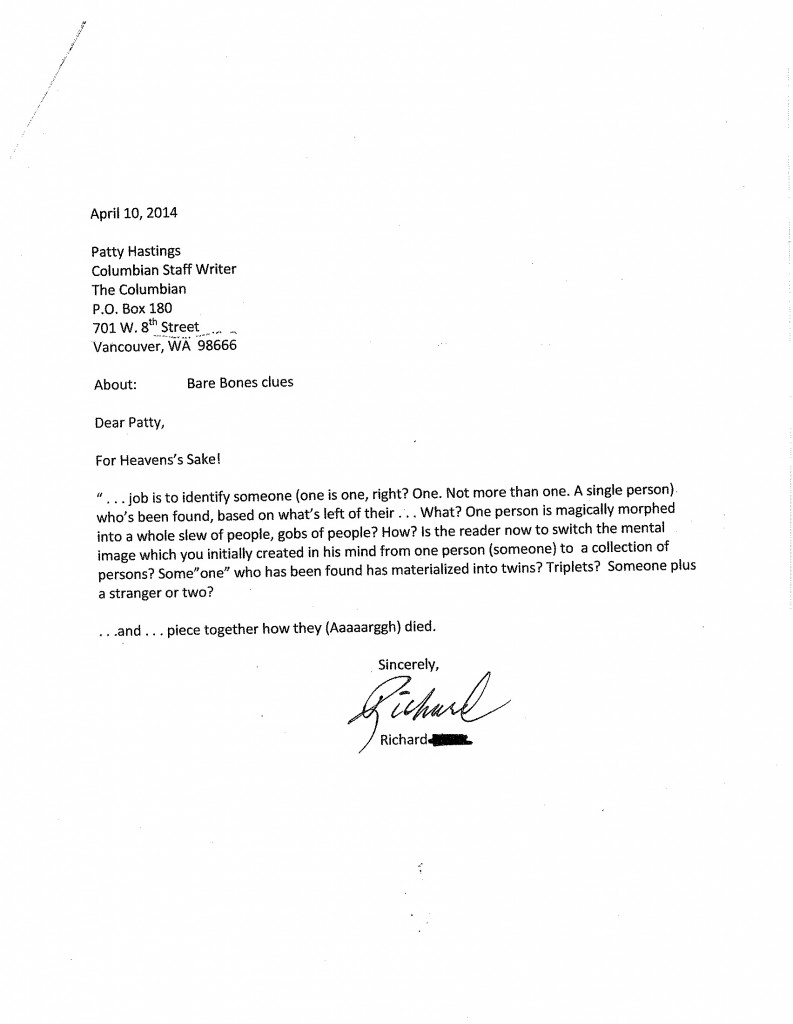Grammar hard-liners

On slow mail days, journalists can often depend on grammar hard-liners to contribute a lecture or two to the newsroom inbox. Grammar isn’t always black and white, but some readers have strong opinions, or pet peeves, about how grammar should be handled.
Many of the letters come from English teachers who are on a mission to save the language from further erosion in our age of 140-character tweets and text message abbreviations.
While occasionally a blow to our journalist egos, we generally are grateful that there are people who meticulously read our articles and take the time to constructively critique any shortcomings.
But some of the letters aren’t so gentle, and some of the critiques aren’t based on facts.
That was the case earlier this week when I received a fat envelope addressed to me and another Columbian reporter, Patty Hastings.
Coincidentally, the letter’s author, Richard, didn’t spell my name correctly. My name is Paris Achen, not Paris Auchen.
Inside the envelope, there were two neatly typed letters each stapled to a different news article. According to the letter’s author, Patty and I were both guilty of using a singular noun with a plural pronoun.
Specifically, he took issue with the following sentence in my article: “Under law, a defendant is competent to stand trial if he or she is able to assist in their own defense.”
“Wait, wait, wait,” Richard began, “A defendant (here at this point, one person, only one person appears in the reader’s mind’s eye) is competent to stand trial if he or she (still in the mind’s eye one person is cast) is able to assist in their …-What? Assist in “their” … defense? Who in the heck is the “their?”
He concluded his letter with: “But I bet your forte … is Latin plural nouns – right?”
No, but the Oxford Dictionaries website offers some guidance on noun and pronoun agreement. In fact, it’s not always necessary for a noun and pronoun to agree.
“It’s often important to use language which implicitly or explicitly includes both men and women, making no distinction between genders,” the website states. “This can be tricky when it comes to pronouns.”
“You can use ‘he or she,’ ‘his or her,’ etc. … This can work well, as long as you don’t have to keep repeating ‘he or she,’…etc., throughout a piece of writing.”
According to the website, an alternative is to “use the plural pronouns ‘they,’ ‘them,’ ‘their,’ etc., despite the fact that, technically, they are referring back to a singular noun.”
“Some people object to the use of plural pronouns in this type of situation on the grounds that it’s ungrammatical,” the website states. “In fact, the use of plural pronouns to refer back to a singular subject isn’t new: it represents a revival of a practice dating from the 16th century. It’s increasingly common in current English and is now widely accepted both in speech and writing.”
While Patty and I wish Richard had been a little nicer in his critiques, we were impressed with the clever titles he gave his letters: “One for all” and “Bare bones clues.”

